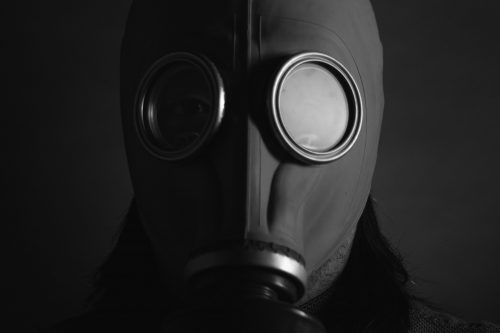I prefer to live my life by the maxim “most emergencies aren’t.” Adhering to this sentiment, I avoid overreacting or panicking. Of course, every so often, there are real emergencies. Even then, it’s better to prepare than to panic. We never look in the rearview and wish we would have panicked more.
As of today, on March 12, 2020, we are unsure whether the novel coronavirus, and its resulting disease, COVID-19, is a widespread emergency or an overreaction. To be clear, it’s already an emergency for some. Many people have died, many more are ill, and many healthcare providers are risking their lives to keep people alive. And there’s a significant likelihood it will get worse in the coming months.
While you and I don’t know whether we’ll be directly affected, we’ll certainly be indirectly affected. The stock market is tanking, factories are ceasing production, stores are running out of inventory, schools and museums are closing, and many public gatherings are being canceled or postponed. To date, SXSW, Coachella, the Houston Rodeo, the Tucson Festival of Books, and hundreds of other events, conferences, and rallies have shuttered under the threat of infection. Even the NBA has suspended its season.
In that same consideration for safety, The Minimalists have decided to postpone our Less Coast Tour until this fall to protect our audience (details will be published on our tour page as soon as they are available). We believe this is the appropriate call given the best information we have about the virus so far.
While all of this can be extremely aggravating, these setbacks are mere inconveniences in the grand scheme of things. The actual problem might be far more serious than shifting around our calendars—it might mean changing how we live for the foreseeable future. As we learn more about the severity of this pandemic, I’m personally being vigilant by:
Asking our entire team to work from home.
Canceling all nonessential travel.
Shunning handshakes and—gasp!—even hugs.
Avoiding public spaces and crowds of people.
Reducing grocery shopping to once a week.
Washing hands, sanitizing phones, and not touching faces.
Yes, these changes might be disorienting or even painful, but our ability to adapt will shuttle us to the other side healthfully. If you have the option, you might need to “cancel everything” temporarily because “social distancing is the only way to stop the coronavirus,” according to Yascha Mounk in The Atlantic, who says “we must start immediately.”
That might sound like the hyperbole of a hypochondriac, but this is unlike anything we’ve seen in our lifetime. According to Amesh Adalja, MD, an infectious disease specialist at the Johns Hopkins University Center for Health Security, COVID-19 is at least six times more deadly than the flu, upwards of 50% of the United States population is likely to contract the virus, and we might witness up to 800,000 deaths in the U.S. alone within the next year. So an under-reaction could be devastating.
Look, I know our individualistic society is not very good at slowing down or self-regulating. But we must. At least for a while. It’s no longer about just you and me—we must consider everyone else. Which seems like a paradox when we talk about “social distancing,” but, right now, one of the best things we can do is love people from afar. Because even if you aren’t worried about the virus yourself, you can transmit it to others if you’re not careful, and spreading the disease will lead to greater human suffering.
Let’s not panic, but let’s be cautious and act accordingly. Even from a distance, we are all in this together. And if you are, indeed, panicking, please remember, it is possible to take this seriously, but also to lighten the mood with a little humor:
As an extreme introvert, I was self-quarantining before it was cool.
— Joshua Fields Millburn (@JFM) March 9, 2020
P.S. The links throughout this post are worth exploring if you’re interested in a nuanced, measured look at the potential fallout from the coronavirus.

